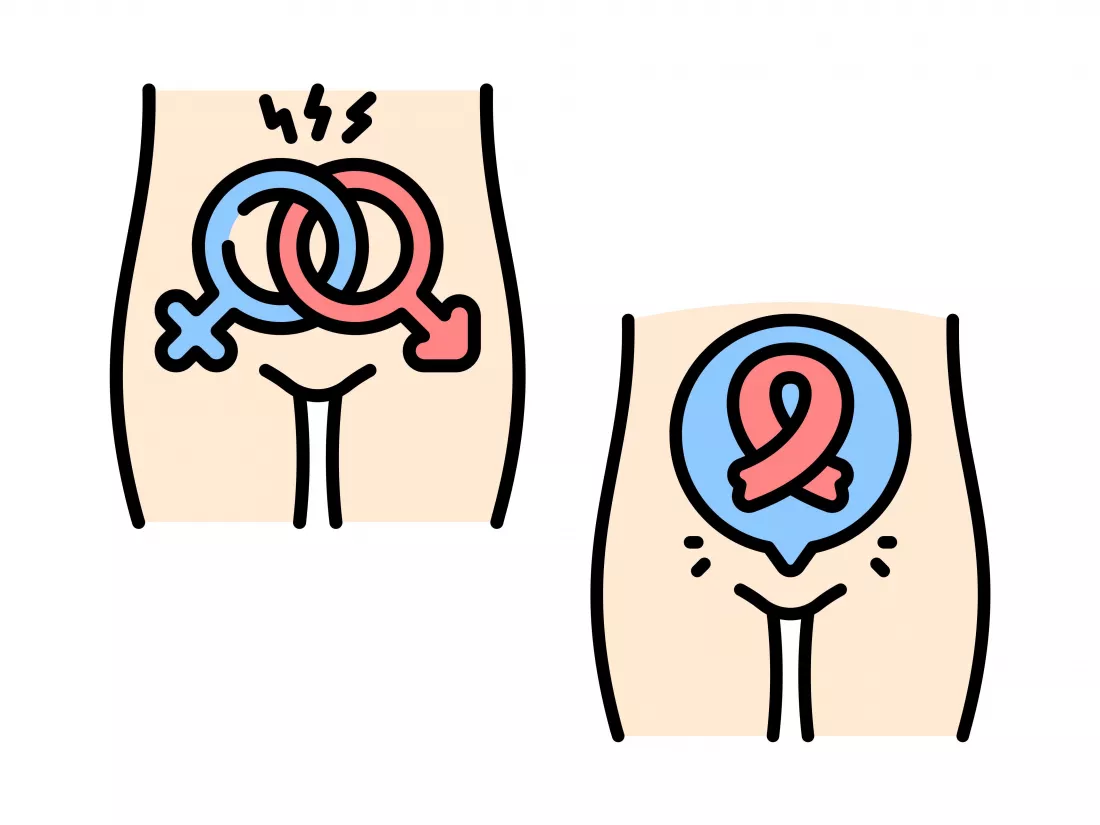Table of Contents
Everything about STDS & Culture |
Sexually transmitted diseases (STDs) are infections passed from one person to another through any form of sexual contact. They are also way more common than you think, with many people not even realising they have one because symptoms aren't always obvious. While this topic may be uncomfortable for some, understanding STDs is key to protecting your health and the health of your partner(s). The good news? Most STDs are treatable and some are even curable! By staying informed and getting regular check-ups, you can take better control of your sexual health!
Around 1 million cases of Sexually transmitted Diseases (STDs) occur every single day worldwide. Although this number may seem startling, it is more surprising to learn that conversations related to these conditions are kept to a minimum. This is because, depending on where you're from, “culture” and “rules” influence the type of discussions that can happen openly. These social limitations could let individuals feel unconfident or judged in sharing their experience, therefore delaying the development of an environment and community which feels safe and approachable.
Within Malaysia, we observe that there is an alarming increase in cases of Sexually Transmitted Diseases. According to Shih-Hui Lee and other researchers, the most common of these are Syphilis, Gonorrhoea, and HIV/AIDS. In 2022 alone, there were ‘4669’ cases of syphilis and ‘1211’ cases of AIDS.
Another important part of this topic includes understanding the negative impact of stereotypes and taboo, and the role they play in contributing to a lack of STD awareness.
Role of Taboo |
The main problem with calling something taboo in society is that it creates a lack of awareness, education, and accessibility. In a study conducted by Chiong Kian Tiong and other researchers, they found that University students reported an “Absence of a comprehensive education of sex, relationships, and STIs, with teachers preaching abstinence.” They also found that the open discussion of safe sex practices and the use of condoms for example, were immediately considered off-limits. This provides us with evidence that Malaysia’s perspective towards STDs may negatively impact the number of patients who are able to openly seek help. This is most likely the result of not having all the facts or knowledge, while also feeling that it is morally wrong.
Identifying STDs and Support |
The symptoms of STDs can vary depending on your specific condition, or you can also be 'Asymptomatic' which means that you do not present with any of the typical physical signs of the underlying illness.
|
Some of these symptoms include: |
|
When seeking treatments or consultations for these conditions, it is important to note that most clinics might make you undergo a process called ‘screening’! Screening is generally recommended for individuals who don’t present with any physical symptoms but might have been exposed to an STD. Screening may also be used to track, monitor, and prevent these infections, for those individuals whose risk for getting one increases or changes.
Diagnosis |
When it comes to the diagnosis of these conditions and what you can expect, medical practitioners would generally require a sample of either your blood or urine to test and confirm any conditions. In more serious cases, they might also test bodily fluids from bumps or sores which present as STD symptoms. If you feel that you are at risk or have been exposed to any of these sexually transmitted diseases, please visit your nearest clinic!
Treatment |
Some of the common treatments for STDs include the administration of ‘Antibiotics’ or ‘Antiviral' drugs. In the case of Antibiotics, a single course of treatment can cure many infections successfully! It is important to remember that once you start taking Antibiotics, it is highly advised to complete the prescription and not miss any doses to receive the full effect! Also, If you are diagnosed with either Herpes or HIV, your medical practitioner would most likely choose to give you an antiviral medication as HIV does not technically have a known cure.
The purpose of antiviral medicine is to suppress any symptoms so there are fewer recurrences. So if you are diagnosed with HIV and are given this medication, patients would still carry the virus and can spread it. However, as the years pass and if taken as directed, the medication could lower the "viral load" in your bloodstream to the point where it is hardly noticeable. This would also eventually stop the spread to any sexual partners.
Final Thoughts |
STDs are on the rise! While still considered taboo in some places, we as society should work together and break free from any prejudice and look towards a more brighter future. While some may question why this is necessary, it is because working together and helping each other is the key to fostering a more supportive and inclusive community.
Let's illuminate the future and spread awareness with Lumirous.
References
- Who.int (2024)
- Islandhospital.com (2024)
- Pubmed.ncbi.nlm.nih.gov (2022)
- Mdpi.com (2023)
- Mayoclinic.org (2023)

